İstanbul Theodosius Wall

What Are the Theodosian Walls (of Constantinople)?
The Theodosian Walls of Constantinople were one of the most powerful defensive structures from ancient and medieval times. Built in the early fifth century AD, during the reign of emperor Theodosius II (thus the name), the Theodosian Walls fulfilled their primary task for a thousand years.

April 30, 2015 The Wolff Chronicles
Theodosius II (Greek: Θεοδόσιος Theodosios; 10 April 401 - 28 July 450) was Roman emperor from 402 to 450. He was proclaimed augustus as an infant and ruled as the Eastern Empire's sole emperor after the death of his father, Arcadius, in 408.His reign was marked by the promulgation of the Theodosian law code and the construction of the Theodosian Walls of Constantinople.
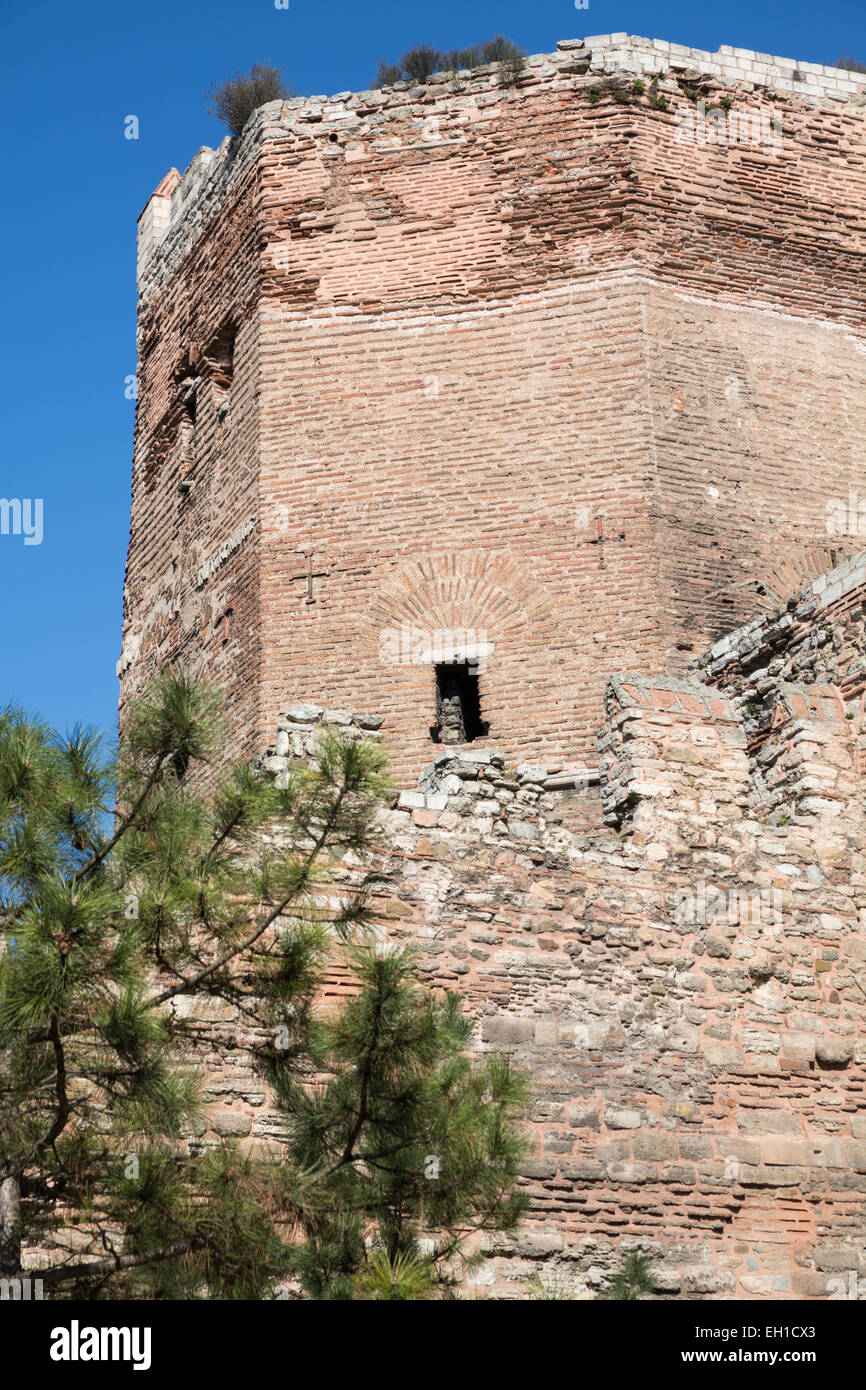
Tower in the City walls of Istanbul, Theodosius stone wall Stock Photo Alamy
And after seeing Rome sacked by Alaric, Anthemius took to extensively fortifying Constantinople, in AD 413 building the great 'Wall of Theodosius' which protected a city which had long outgrown the original Wall of Constantine.

The Old Walls of Emperor Theodosius for the Defense of Constantinople Stock Photo Image of
What Are the Theodosian Walls (of Constantinople)? Constructed in the 5th century AD, the Theodosian Walls defended the city of Constantinople for thousand years, and still remain one of the most imposing structures of the ancient world. Dec 21, 2022 • By Vedran Bileta, MA in Late Antique, Byzantine, and Early Modern History, BA in History
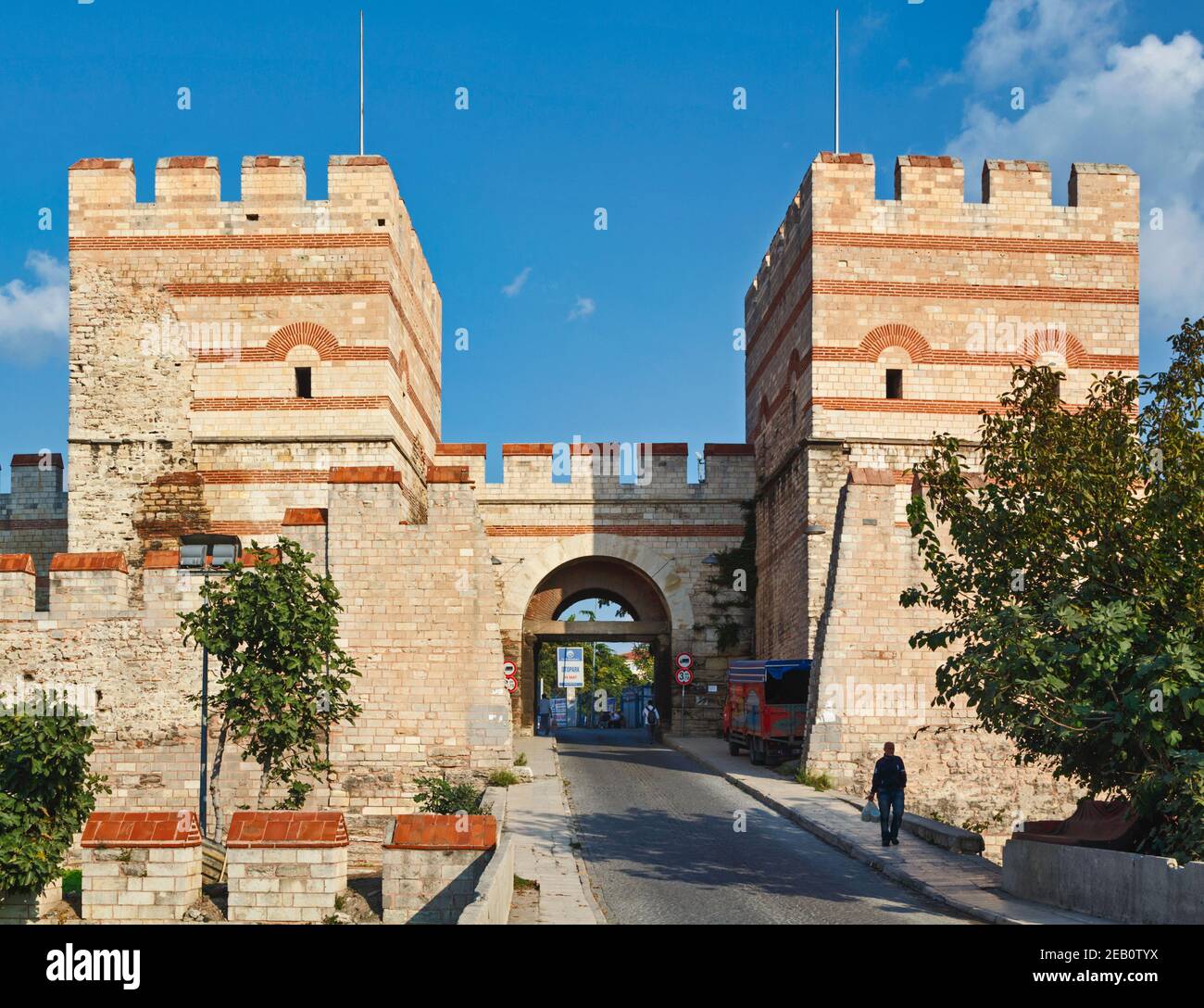
Muro di teodosio immagini e fotografie stock ad alta risoluzione Alamy
The Walls of Constantinople ( Greek: Τείχη της Κωνσταντινουπόλεως) are a series of defensive stone walls that have surrounded and protected the city of Constantinople (today Istanbul in Turkey) since its founding as the new capital of the Roman Empire by Theodosius II.

City walls of Istanbul, Theodosius wall Stock Photo Alamy
The double-layered thick stone ramparts that are visible today date from the fifth century, and are called the Theodosian walls, after the Byzantine emperor Theodosius II, who oversaw their.

Walls of Theodosius, Istanbul
Bigdaddy1204, . " Theodosian Walls ." World History Encyclopedia. World History Encyclopedia, 06 Dec 2017. Web. 31 Dec 2023. A restored section of the Theodosian Walls of Constantinople, completed c. 413 CE.
The Theodosian Walls of Constantinople (Photo taken November 2009) r/byzantium
Constantinople endured for more than 1,100 years as the Byzantine capital in large part due to the protective wall completed under Theodosius II in 413. Expanding the city perimeter west from.
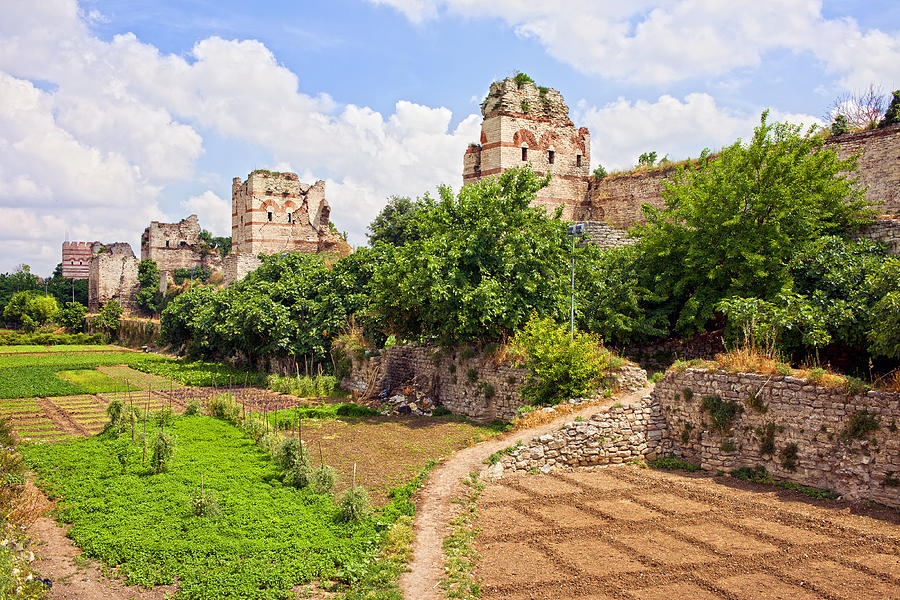
Theodosius Walls in Istanbul Photograph by Artur Bogacki
Alaric was one such figure under Theodosius I and his son, Honorius, who governed the Western Roman Empire (r. 393-423), while Theodosius II (though still a child) ruled in the East from Constantinople.. Behind the passage was a second circular wall, 8 meters (26 ft) high with 82 towers, with a second passage. In addition, a moat 15 to 20.

Theodosius Walls in Istanbul Stock Image Image of ruins, attraction 20623129
Walls of Theodosius Walls of Theodosius 44 reviews #203 of 1,710 things to do in Istanbul Historic SitesAncient RuinsBattlefields Write a review What people are saying By W G " History still there " Dec 2019 These were the formidable walls that protected Constantinople and are still largely intact today. Suggest edits to improve what we show.

Crosssection of the Theodosian Walls (Illustration) World History Encyclopedia
Eileen Stephenson October 16, 2016 The greatest defensive element of the city of Constantinople were its walls, called the Theodosian Walls after the Emperor Theodosios, during whose reign the walls were built. Although named for Theodosius, he was still a boy when construction was completed by his then-regent, Anthemius, in 413.

Theodosian Walls (İstanbul Surları)
For almost 1,000 years that wall of Constantinople defended Western Christendom-only to be compromised by Crusaders and finally breached by Turkish cannons. by Comer Plummer III 6/12/2006. The art of fortification has existed ever since man first came to realize the value of natural obstacles to his common defense, and evolved as he sought to.

Theodosian Walls Istanbul DK Eyewitness Travel
The Theodosian Walls are the fortifications of Constantinople, capital of the Byzantine Empire, which were first built during the reign of Theodosius II (408-450 CE). Sometimes known as the Theodosian Long Walls, they built upon and extended earlier fortifications so that the city became impregnable to enemy sieges for 800 years.

Uins of Ancient Fortress Wall of the Emperor Theodosius in the Center of Istanbul. Turkey Stock
The moat is around 20 meters wide, with a maximum depth of 7 meters. In some towers of the outer wall, there are posterns giving access to the outer terrace. The Theodosian Walls have six main gates and several secondary posterns.
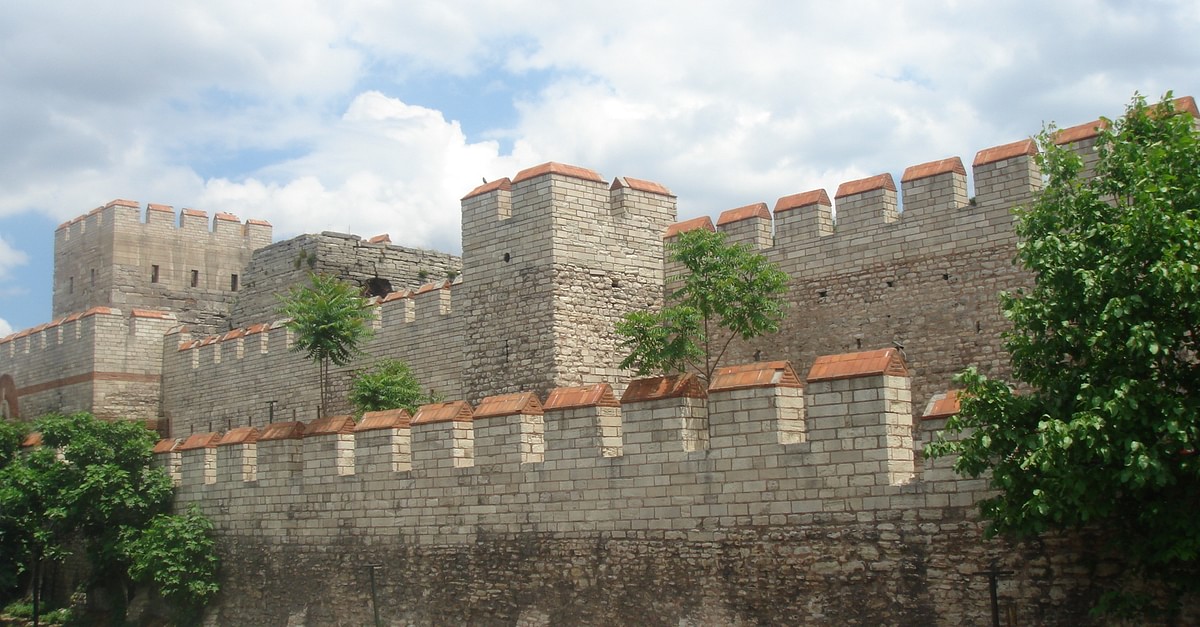
Theodosian Walls World History Encyclopedia
Late Roman Capital Byzantine Capital Photos Restored section of the triple wall Constantinople has had several walls. The oldest of these surrounded the Akropolis and was built by the first Greek settlers.
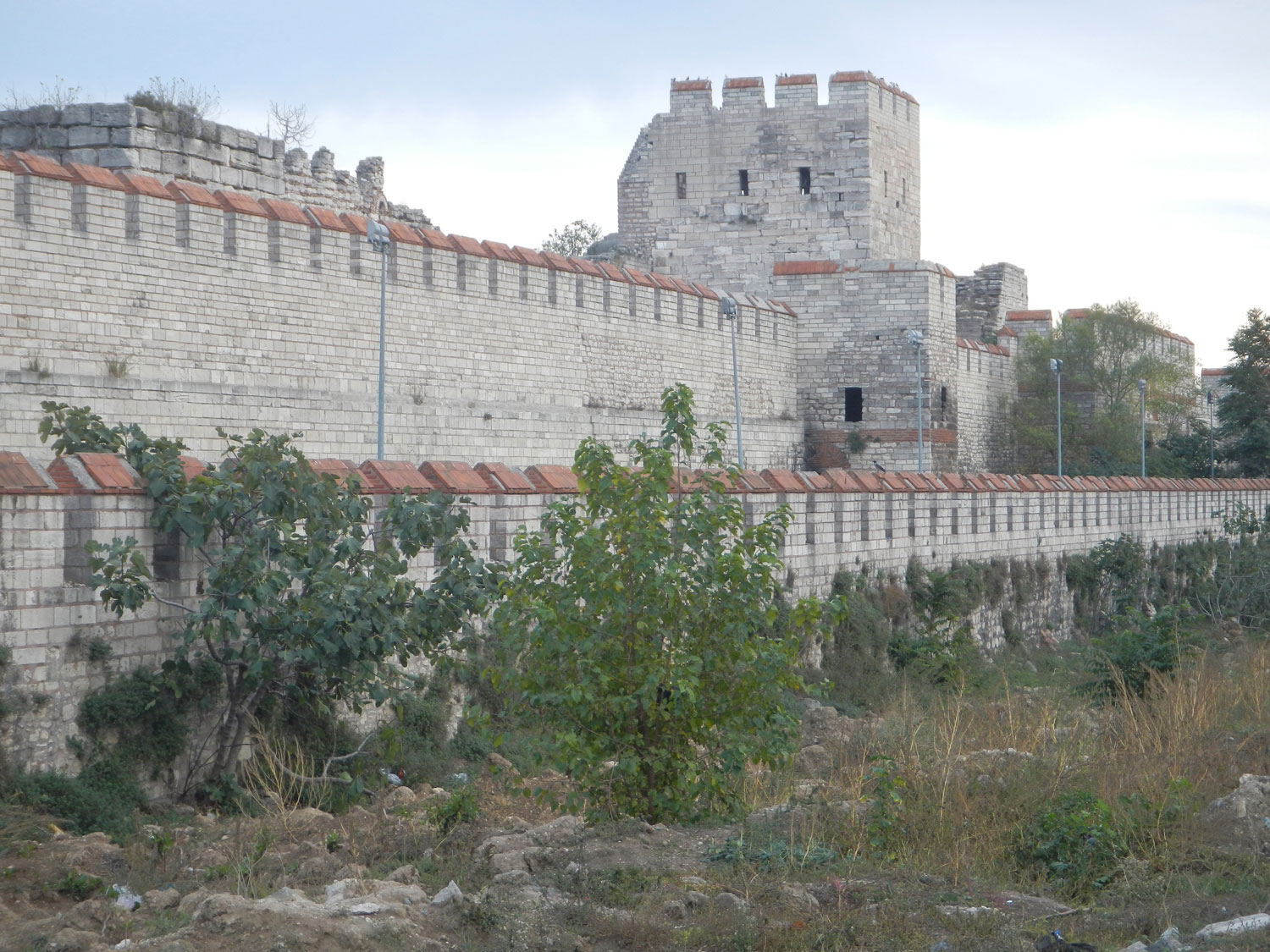
wallofTheodosius IMPress Magazine
The Walls of Constantinople are a series of defensive stone walls that have surrounded and protected the city of Constantinople since its founding as the new capital of the Roman Empire by Theodosius II. With numerous additions and modifications during their history, they were the last great fortification system of antiquity, and one of the most complex and elaborate systems ever built.